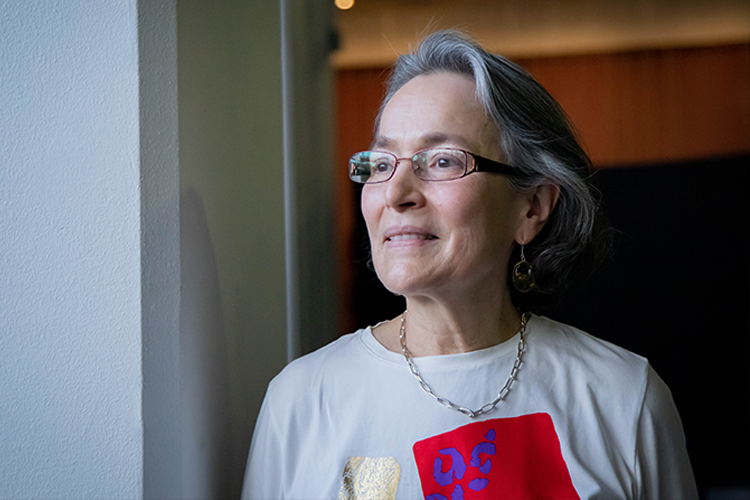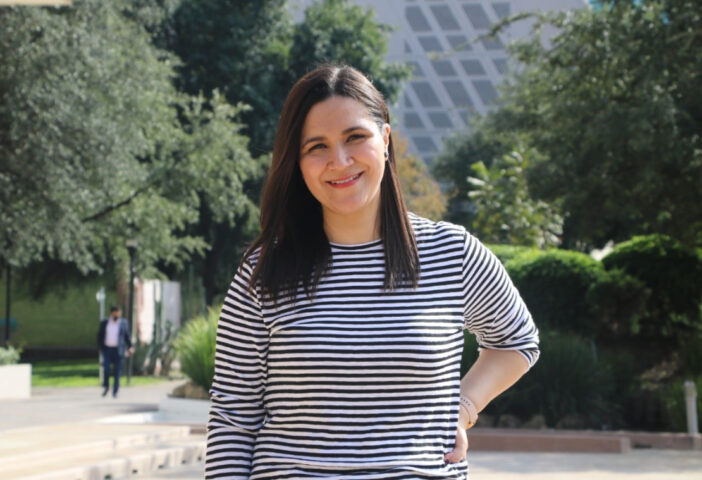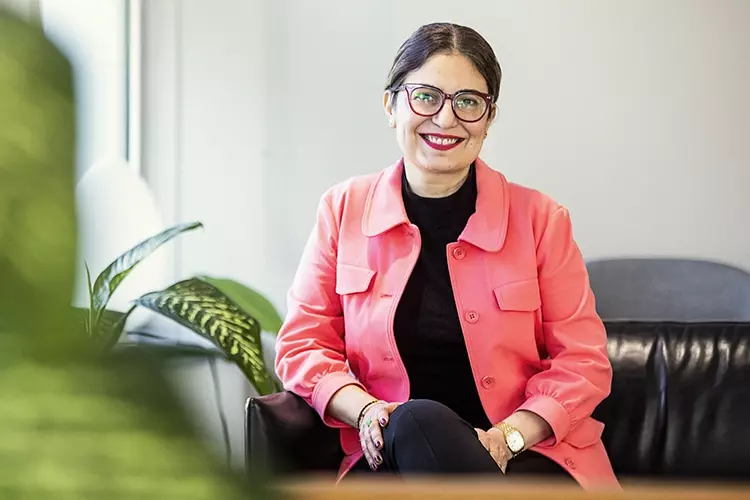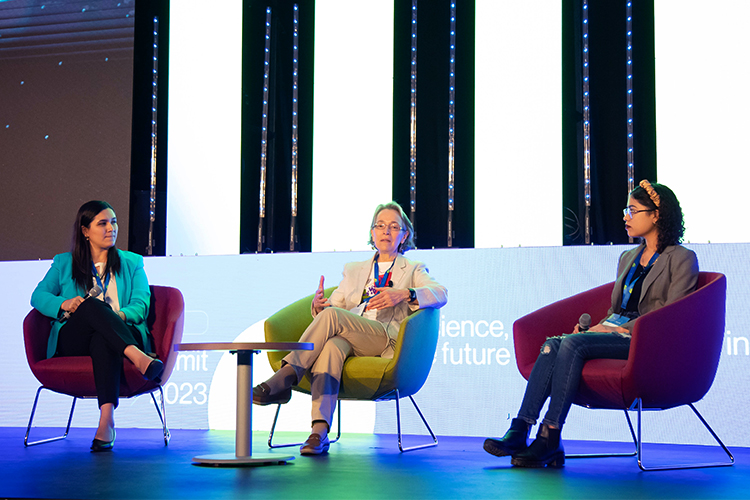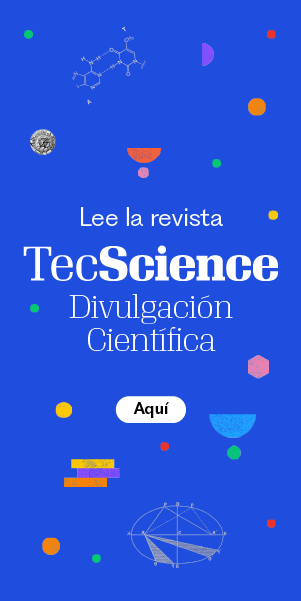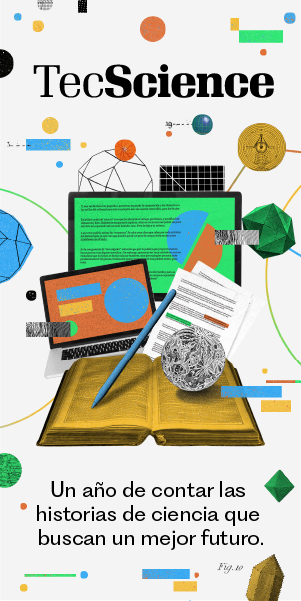Susana Lizano Soberón is a Mexican astrophysicist who specializes in the theoretical study of star formation in our galaxy. She studied physics at the National Autonomous University of Mexico (UNAM) and her master’s and Ph.D. in astronomy at the University of California, Berkeley. Now, she is the president of the Mexican Academy of Sciences (AMC, in Spanish).
In Mexico, she is a pioneer in this type of research and has made fundamental contributions, recognized nationally and internationally, on how stars are born.
She was one of the founders of the Institute of Radio Astronomy and Astrophysics of UNAM and among her many recognitions, she was the winner of the Scientific Research Award of the Mexican Academy of Sciences, the Scientific Research Award of the Mexican Physics Society, as well as as the National Prize of Sciences and Arts.
Since 2020, she has been president of the Mexican Academy of Sciences, which since its foundation in 1959, has only had her and another female researcher as president. Her predecessor is Rosaura Ruiz Gutiérrez, who held the position from 2008 to 2009.
During the Tec Science Summit 2023 at Tecnológico de Monterrey, Lizano Soberón talked with TecScience about the problems the Academy faces in order to survive, what it means to be a woman scientist, and the humbling lessons astronomy has taught her.
“We are really just a little dot in the Universe and we are lucky to have a planet that supports our life, otherwise we would not be here talking to each other.”
Mexican Academy of Sciences and its struggle to survive
What does it mean to you to be the second female president of the Mexican Academy of Sciences?
I can say that it is a great honor and a great responsibility to be president of the Mexican Academy of Sciences. It’s a special moment because the academy has had many financial problems, so I think that’s what will mark my term, trying to help the academy survive despite these financial problems.
In the networks of international academies, it is already very common for them to have women presidents, it is a glass ceiling that breaks. The first female president, Dr. Rosaura Ruiz, represented something important, it’s like accepting that there must be diversity everywhere.
At this time, the important thing is that the Academy, which represents a group of consolidated researchers in the country, remains in office. It is what we are trying to do.
I currently represent a group of researchers from all areas of Mexico and that representation is important. It’s important to explain to decision-makers in the government and industry why it is important to invest in science. It is about promoting science and this is what the Mexican Academy of Sciences does in all areas, going from good quality education to young and consolidated researchers.
What was your path to becoming a scientist, were there women who inspired you to be one?
It wasn’t like that, I really think there were few women scientists back then. I just liked physics and mathematics, and that’s why I enrolled in the Faculty of Sciences [UNAM]. I must say that I didn’t know what area of physics I was going to specialize in, but when I chose astronomy, curiously, at the Institute of Astronomy, there was a considerable number of women, about 30%, which is something unusual in hard sciences. But I didn’t have a figure or role model, it was because of my interest in physics and mathematics.
What has astronomy taught you about humanity?
When we think about what humanity is in the universe, which is so vast, we’re really a little dot and we are fortunate to have a planet that sustains our lives because if not, we wouldn’t be here talking.
And just as there is this planet, well surely there are going to be billions of planets in some other places. We, astronomers, think that there must be some kind of life out there, not like the one here, but surely some other form. It really is wonderful that one can study the universe, study nature, and see how it all works.
When one realizes what humanity is, even in the scale of Earth itself and compared to the forces of nature, which can be very powerful, one learns about humility.
I think that the more you study, the more you realize that you don’t know everything and how wonderful it is how both the universe and nature work, and I think that’s a lesson in humility.
If people were more aware of what I’m saying, what would be the point of fighting for one religion or another? What would be the point of fighting for political power or for making our neighbors think the same way as we do? It makes no sense. The fact that there is life on our planet, and that intelligence developed is quite interesting and that is why we are here. All this destruction, for example, the war in Ukraine, what’s the point of it?
That is humility, not having the answer to everything, having the urge to learn.
More women in science
Speaking of women in STEM careers, what do you think we need to do to keep driving this progress?
We did a study at the Mexican Academy of Sciences where we saw that, in science bachelor’s and postgraduate degrees, there are already equal numbers between men and women. So why are women discouraged from pursuing a research career after completing a Ph.D?
I don’t think it’s a matter of numbers now, many women are graduating with PhDs, but any career, not just in science, will require time, commitment, and effort, but I believe that in Mexican society there is still an education that makes women feel responsible for the family.
I would suggest to young women that look for a partner with whom to share that responsibility, it is happening more and more, but I think that the important thing is to have all the support that is possible so that women are able to continue developing their career if they are passionate about it.
For example, a scientific career now normally requires a postdoc, preferably in another country, so that scientists can go to other laboratories, see how they work, and create international collaboration networks. That shouldn’t stop women in their tracks. If they want to do it, they should continue on that path and not assume a family responsibility, which I believe should be shared.
Has it been possible for you to combine your academic life with your family life?
Yes, I have a very good husband, he’s a mathematician and they are famous because they are very good partners. In my case this is absolutely true, he has always supported me and allowed me to leave family responsibilities to do academic activities and then return and resume family activities and support him instead. So that’s why I think this is very important.
Now, there are other measures that can be taken as well, for example, trying to have better maternity support in research and educational institutions.
In the Center for Research and Advanced Studies of the National Polytechnic Institute (Cinvestav), there are nurseries that help. I have a friend who works there and she has a small child who she can leave in the nursery, work all day, and know he’s close, in case of an emergency. This would be very good for all research institutions, I know it is expensive, but it’s something that would greatly help everyone, both women and their families.
Another thing that is very important is for young women to be able to see women who have made a career out of science and have been able to mix their careers with family life. Role models. I would tell women around the world that doing this isn’t easy, but really, what is easy in life?
If science is your dream, you should continue with it.
